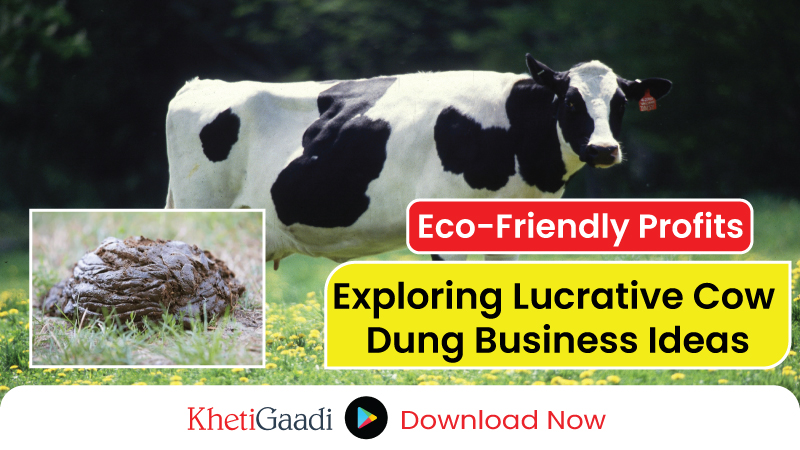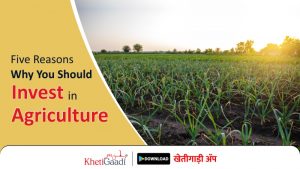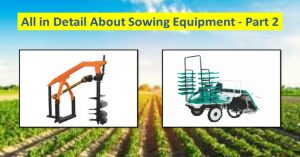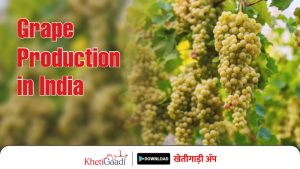Cow dung, often considered waste, is actually a treasure trove of potential. With its rich nutrient content and versatile applications, cow dung has become an increasingly valuable resource in various industries. Whether you are a farmer or an entrepreneur looking for sustainable business opportunities, cow dung offers a range of possibilities for a profitable venture. This guide will explore the various components of cow dung, innovative business ideas, and the environmental benefits of utilizing cow dung as a resource.
The Composition of Cow Dung and Its Potential
Cow dung is a natural byproduct of cattle that contains a rich array of nutrients and organic matter. Its composition makes it a valuable resource for several industries:
Key Components of Cow Dung
- Organic Matter: Comprising about 80% of cow dung, organic matter is primarily made up of undigested plant material, including cellulose and lignin. This makes it an excellent organic fertilizer.
- Nitrogen, Phosphorus, and Potassium (NPK): Cow dung is rich in these essential nutrients, crucial for plant growth. Nitrogen promotes leafy growth, phosphorus aids root development, and potassium enhances overall plant health.
- Beneficial Microorganisms: Cow dung contains various microbes that aid in decomposing organic matter and enriching the soil with nutrients. These microbes play a crucial role in soil fertility and plant health.
- Fiber: The fibrous content of cow dung can be used to make paper and biodegradable packaging materials.
- Minerals: It contains essential minerals like calcium and magnesium, contributing to soil fertility and plant growth.
Potential Applications
- Fertilizer: Cow dung is widely used as a natural fertilizer in agriculture, improving soil fertility and crop yields.
- Biogas Production: Through anaerobic digestion, cow dung can be converted into biogas, a renewable energy source used for cooking, heating, and electricity generation.
- Compost Production: Cow dung can be composted to produce nutrient-rich organic manure, beneficial for gardening and landscaping.
- Paper and Packaging: The fibrous content can be used to make eco-friendly paper and biodegradable packaging materials.
- Pest Repellent: Cow dung ash is used as a natural pest repellent, protecting crops from insects and pests.
Latest Cow Dung Business Ideas with Less Investment
With growing awareness of sustainability and eco-friendly practices, cow dung has become a lucrative business opportunity. Here are some innovative cow dung business ideas that require minimal investment:
1. Organic Fertilizer Production
Overview: Produce and sell organic fertilizers made from cow dung. This business can be started on a small scale and expanded as demand grows.
Steps to Start:
- Collection: Source cow dung from local farms or dairy farms.
- Processing: Compost the cow dung to produce organic manure. This involves mixing it with other organic materials and allowing it to decompose.
- Packaging: Package the composted manure in bags for sale.
- Marketing: Promote your organic fertilizer to farmers, gardeners, and nurseries through local markets, online platforms, and agricultural expos.
- Investment: Low initial investment for raw materials and basic equipment like compost bins, packaging materials, and transportation.
- Profitability: High demand for organic fertilizers due to increasing awareness of sustainable farming practices.
2. Biogas Production
Overview: Set up a biogas plant to convert cow dung into biogas, a clean and renewable energy source. This business can provide cooking gas, electricity, and organic fertilizer.
Steps to Start:
- Setup: Install a biogas plant, which includes a digester, inlet, outlet, and gas storage system.
- Raw Material: Collect cow dung and other organic waste for biogas production.
- Operation: The anaerobic digestion process breaks down the organic matter to produce biogas and slurry.
- Utilization: Use biogas for cooking, heating, or electricity generation. The slurry can be sold as organic fertilizer.
Investment: Moderate investment for setting up the biogas plant, with potential subsidies and government support.
Profitability: Steady income from biogas sales, potential savings on energy bills, and additional revenue from selling slurry.
3. Cow Dung Paper and Packaging
Overview: Utilize the fibrous content of cow dung to produce eco-friendly paper and packaging materials. This innovative business can cater to the growing demand for sustainable packaging solutions.
Steps to Start:
- Collection: Gather cow dung from local sources and separate the fibrous content.
- Processing: Mix the fibers with other materials like cotton or wood pulp to create a pulp suitable for paper production.
- Production: Manufacture paper and packaging materials using the pulp.
- Marketing: Target eco-conscious consumers, businesses, and organizations interested in sustainable packaging.
Investment: Low to moderate investment for machinery and raw materials, with potential grants for eco-friendly businesses.
Profitability: Increasing demand for biodegradable and sustainable packaging materials, providing a niche market opportunity.
4. Cow Dung-based Incense Sticks and Dhoop
Overview: Create incense sticks and dhoop using cow dung, which are used for religious and aromatic purposes. This business has a large market in India due to cultural and religious significance.
Steps to Start:
- Collection: Obtain cow dung and mix it with natural aromatic ingredients like herbs and essential oils.
- Production: Mold the mixture into sticks or cones and dry them.
- Packaging: Package the incense sticks attractively for sale.
- Marketing: Distribute through local stores, online platforms, and religious centers.
Investment: Minimal investment for raw materials and basic equipment.
Profitability: High demand in religious and spiritual markets, with potential for export.
5. Cow Dung-based Pest Repellent
Overview: Develop and sell natural pest repellent made from cow dung ash. This eco-friendly solution is popular among organic farmers and gardeners.
Steps to Start:
- Collection: Collect cow dung and burn it to produce ash.
- Formulation: Mix the ash with other natural ingredients to enhance its pest-repelling properties.
- Packaging: Package the pest repellent in convenient containers.
- Marketing: Target organic farmers, gardeners, and environmentally conscious consumers.
Investment: Low investment for raw materials and packaging.
Profitability: Growing demand for natural and chemical-free pest control solutions.
Environmental Benefits of Utilizing Cow Dung
Utilizing cow dung as a resource offers numerous environmental benefits, contributing to sustainability and ecological balance:
1. Waste Management
- Reduction in Waste Accumulation: By converting cow dung into valuable products, the scheme reduces waste accumulation on farms, promoting cleaner and healthier environments.
- Efficient Resource Utilization: Cow dung is utilized efficiently, reducing the need for landfill disposal and minimizing environmental pollution.
2. Renewable Energy Source
- Biogas Production: Cow dung is a renewable energy source through biogas production. Biogas reduces reliance on fossil fuels and decreases greenhouse gas emissions.
- Sustainable Energy: Using cow dung for energy generation supports sustainable energy practices, aligning with global efforts to combat climate change.
3. Soil Enrichment
- Organic Fertilizer: Cow dung enhances soil fertility and structure, promoting healthy plant growth and reducing the need for chemical fertilizers.
- Soil Microbial Activity: The beneficial microorganisms in cow dung improve soil health by promoting microbial activity and nutrient cycling.
4. Carbon Footprint Reduction
- Lower Emissions: By replacing chemical fertilizers and fossil fuels, cow dung-based products help reduce carbon emissions and mitigate climate change impacts.
- Carbon Sequestration: The organic matter in cow dung contributes to carbon sequestration in the soil, further reducing atmospheric carbon levels.
5. Biodiversity Support
- Habitat Preservation: Sustainable cow dung utilization practices preserve natural habitats and support biodiversity by reducing environmental degradation.
- Ecological Balance: By promoting organic farming and reducing chemical inputs, cow dung supports ecological balance and promotes healthy ecosystems.
Indian Government Schemes for Cow Dung Businesses
The Indian government has launched several schemes and initiatives to support businesses related to cow dung utilization. Here are some notable ones:
1. Gobar-Dhan Scheme
Overview: The Gobar-Dhan (Galvanizing Organic Bio-Agro Resources) Scheme aims to manage and convert cattle dung and solid waste into compost, biogas, and bio-CNG, promoting a circular economy.
- Objective: To support villages in effectively managing cattle waste and encouraging entrepreneurship in waste-to-wealth initiatives.
- Benefits: Financial assistance for setting up biogas plants, incentives for producing bio-CNG, and training support for stakeholders.
2. Rashtriya Gokul Mission
Overview: Launched under the National Programme for Bovine Breeding and Dairy Development, this mission aims to conserve and develop indigenous breeds of cattle, indirectly supporting cow dung-related enterprises.
- Objective: To enhance milk production and productivity through the development of indigenous breeds.
- Benefits: Infrastructure support for establishing Gokul Grams (integrated cattle development centers), training, and promotion of organic farming practices.
3. New National Biogas and Organic Manure Programme (NNBOMP)
Overview: This program aims to promote the installation of biogas plants and the use of organic manure, facilitating the conversion of cow dung into biogas and fertilizer.
- Objective: To promote sustainable energy solutions and improve rural sanitation.
- Benefits: Subsidies for setting up biogas plants, technical support, and training programs for stakeholders.
Success Stories and Case Studies
Case Study 1: Green Energy Revolution in Maharashtra
Background: A small village in Maharashtra, known for its dairy farming, has become a model for sustainable energy through the use of cow dung.
Implementation:
- The village set up a community-based biogas plant with the help of the Gobar-Dhan Scheme.
- Cow dung from local dairy farms was collected and processed into biogas, providing clean cooking fuel to over 200 households.
Outcome:
- The village reduced its reliance on traditional firewood, improving air quality and reducing deforestation.
- The biogas plant also produced organic fertilizer, boosting local agriculture productivity.
- The initiative created job opportunities and empowered the local community with sustainable practices.
Case Study 2: Organic Fertilizer Business in Gujarat
Background: Ramesh Patel, a farmer in Gujarat, ventured into organic fertilizer production using cow dung from his cattle farm.
Implementation:
- Ramesh leveraged the Rashtriya Gokul Mission to receive training on organic farming and fertilizer production.
- He started producing high-quality organic manure, targeting local farmers and nurseries.
- Ramesh used social media platforms and local markets to promote his product.
Outcome:
- Within two years, Ramesh’s business expanded, and he became a leading supplier of organic fertilizers in the region.
- His success encouraged other farmers to adopt organic farming practices, contributing to sustainable agriculture.
- Ramesh’s business provided additional income for his family, improving their quality of life.
Case Study 3: Eco-Friendly Packaging Initiative in Karnataka
Background: A start-up in Karnataka, founded by two young entrepreneurs, has tapped into the cow dung business by creating eco-friendly packaging materials.
Implementation:
- The start-up received funding from the New National Biogas and Organic Manure Programme to develop innovative packaging solutions.
- They designed biodegradable packaging materials made from cow dung fibers and other natural ingredients.
- The company partnered with local businesses and online retailers to market their products.
Outcome:
- The eco-friendly packaging gained popularity among environmentally conscious consumers and businesses.
- The start-up received recognition for its contribution to reducing plastic waste and promoting sustainability.
- The success of this venture inspired similar initiatives across the state, boosting the eco-friendly packaging industry.
Conclusion
Cow dung, once considered a waste product, has emerged as a valuable resource with diverse applications and significant economic potential. From organic fertilizers and biogas production to eco-friendly paper and pest repellents, cow dung offers numerous opportunities for entrepreneurs and farmers alike. By harnessing the power of cow dung, businesses can contribute to sustainability, enhance agricultural productivity, and promote environmental conservation. Embracing innovative cow dung-based ventures not only offers profitable opportunities but also supports a greener and more sustainable future.
Useful Links
Tags




